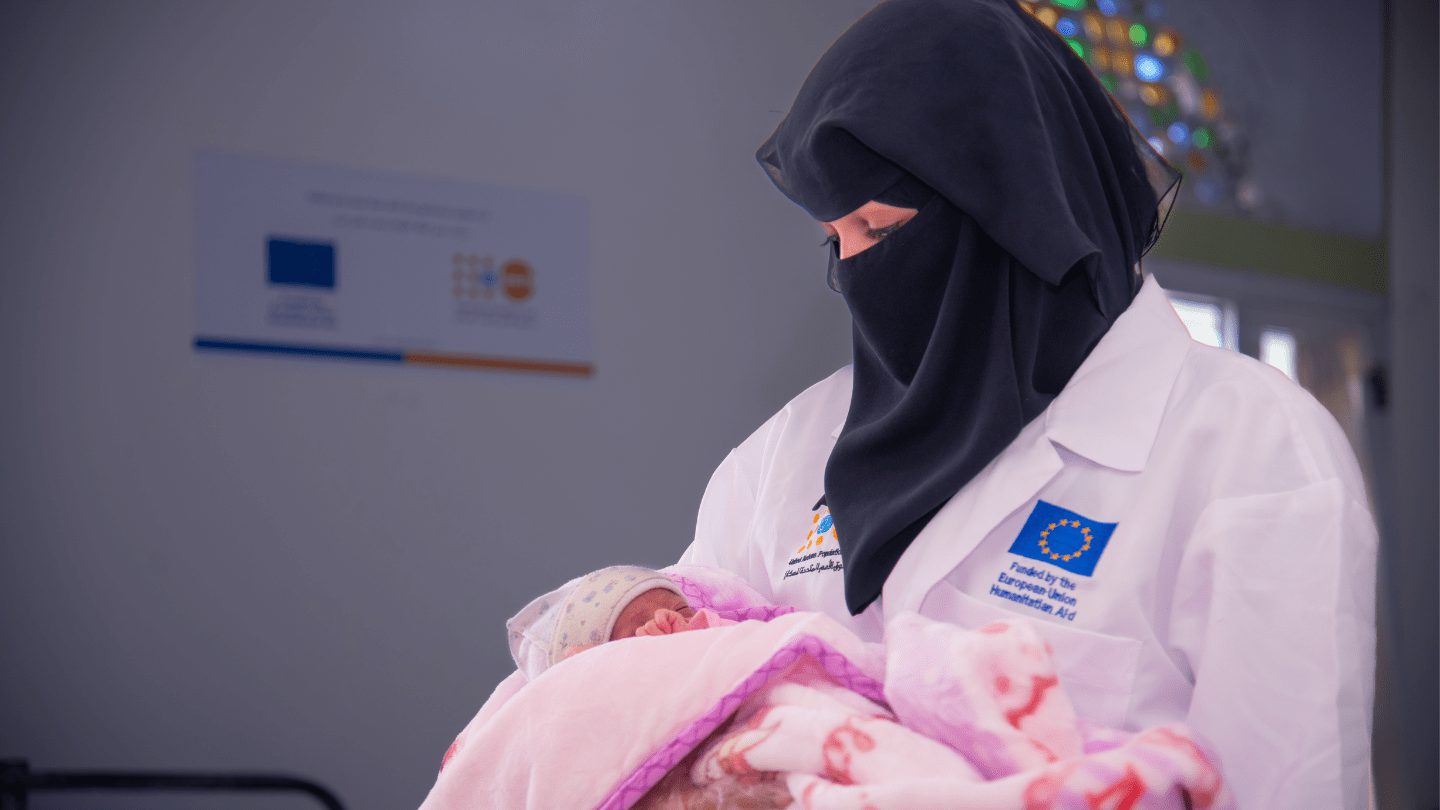Al Hudaydah, Yemen – “I was afraid I wouldn’t survive my pregnancy, but the timely care I received at the health centre saved me and my baby,” tells Zainab, 28, from Al Khokha district.
Zainab, pregnant with her fourth child, faced serious childbirth complications. The families’ impoverishment left her severely malnourished and anemic during her entire pregnancy, threatening her life and that of her newborn during childbirth.
A health system stretched to its limit
A decade of conflict has stretched Yemen’s healthcare system to breaking point. Only one in five of the functioning health facilities is able to provide maternal and child health services. As a result, five million women of childbearing age, including pregnant and lactating women, face challenges accessing health services, especially in rural and frontline districts. This is due to the non-availability of specialized female doctors and nurses, insufficient essential medical supplies, and limited access to services.
Over 1.3 million pregnant and breastfeeding women are projected to require treatment for acute malnutrition in 2025. They risk giving birth to newborns with severely stunted growth and nursing malnourished infants due to rising food insecurity.
As Zainab’s complications worsened in her seventh month of pregnancy, she sought care at Al Khokha Health Centre – a vital point for health services in the community, serving more than 150 people a day – supported by UNFPA with the financial assistance of European Union Humanitarian.
At the center, Zainab was welcomed by an experienced, all-female medical team. A trained midwife conducted a thorough assessment, provided iron supplements and personalized counseling on hygiene and nutrition.
The severity of Zainab’s condition required referral to Hays Rural Hospital – another facility supported by European Union in the area – offering more specialized and surgical care for pregnant women. Zainab also received cash to cover her transportation cost, a cost she could not afford. This helped to ensure her safe and timely access to advanced medical care.
At Hays Hospital, Zainab underwent a caesarean section, delivering safely.
Later, Zainab returned to the Al Khokha Center for postnatal care, participating in sessions for breastfeeding and family planning that helped to strengthening her ability to care for herself and her newborn.
Zainab’s husband, who has previously been hesitant to seek skilled care during childbirth for his wife has now become a strong advocate, actively encouraging other men in the village to obtain these services at health facilities for their wives.
The impact of this continuum of care was profound. Zainab recovered fully and avoided life-threatening complications and was empowered with the knowledge to safeguard her health, her families and the community at large.
Partnerships saving lives
Zainab story could have ended in tragedy but became a story of survival, resilience, and community transformation by ensuring access and availability to coordinated health services, fueled through the strong partnership of UNFPA and the European Union.
With the support of European Union, UNFPA provides emergency obstetric and maternal health care in 52 health facilities across Yemen. This support since 2018, has been pivotal to address the maternal health of millions of women and girls and save thousands of women’s lives during childbirth.


